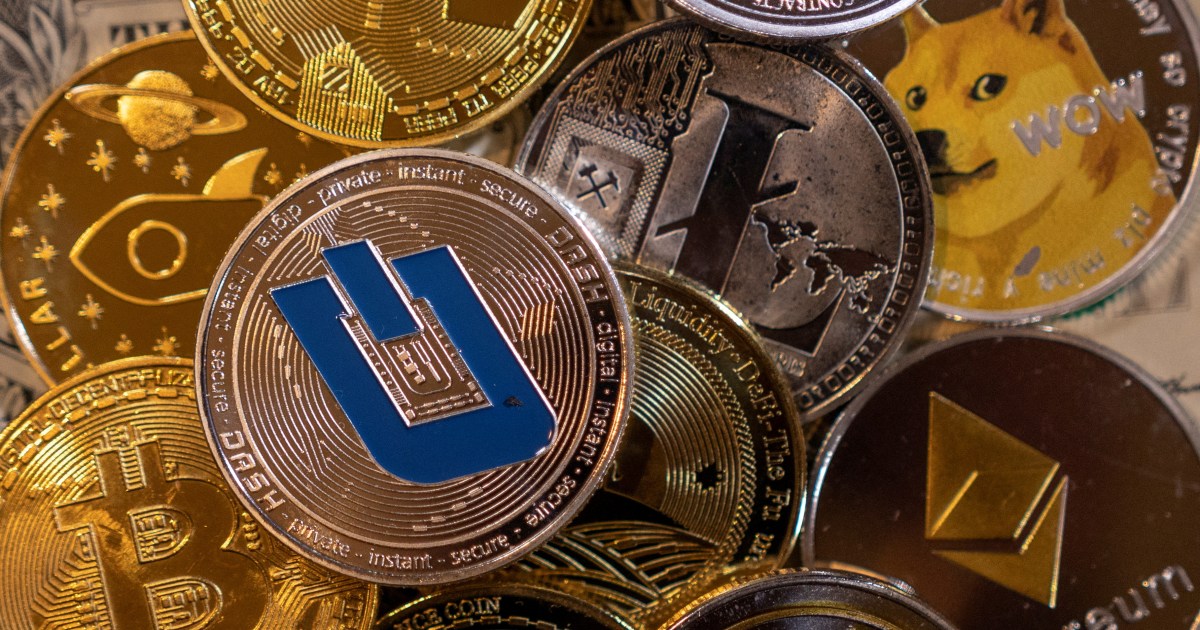Moscow
- Statements by Western officials indicate that they are continuing to tighten control over all the outlets that Russia can exploit to bypass the sanctions imposed on it.
In recent days, decision-making circles in the United States and Europe have focused on ensuring that Moscow does not resort to the option of dealing with digital currencies to bypass the sanctions imposed on it, especially in light of fears that crypto companies will not comply with the new sanctions and rules, which in turn leads to creating an important hole in the sanctions wall. Western countries on Russia, which includes the use of cryptocurrencies.
Analysts believe that Moscow can mitigate the effects of the new sanctions with the help of cryptocurrencies, as Russian legal entities that are subject to restrictions will use digital assets in international transactions, given that the digital currency is more suitable, in the event that Russia is separated from the “SWIFT” system (SWIFT) from Corporate transactions subject to subsidiary sanctions.
This comes at a time when the Russian authorities have tightened the rules for foreign exchange transactions for companies and citizens, and imposed restrictions on foreign investment due to the military operation in Ukraine and sanctions.
The Kremlin imposed restrictions on the purchase of Russian shares and real estate by structures and individuals from foreign countries that imposed sanctions on Russia.
A presidential decree also stipulated a ban on the export of cash in excess of $10,000, after this was previously possible, provided the amount is declared at customs.
In parallel, the Central Bank imposed restrictions on the monthly amount of transfers abroad by resident individuals.
Now, it cannot exceed $5,000.
The Ministry of Finance also obligated exporters to convert 80% of foreign exchange earnings into the Russian ruble, and this emergency measure - according to the ministry - is designed to support the ruble exchange rate.
Economists interpret these measures as an attempt to prevent the flow of hard currency outside the country, and to stop additional pressures on the ruble exchange rate in the current conditions.
persistent need
In an attempt to counter Western measures, the Ministry of Finance submitted to the government its version of the cryptocurrency regulation bill, which aims to “legalize” the digital currency market with setting rules for its circulation and the circle of participants. investment.
Economist Vladimir Olinchenko says that attempts to legalize cryptocurrencies in the Russian Federation were previously minimal, but now they have become an urgent and feasible need in light of the new transformations associated with the very stringent sanctions taken by Western countries against Russia.
Preventive measures
In an interview with Al-Jazeera Net, Olenkochenko believes that switching to cryptocurrencies is part of preventive measures in order to circumvent sanctions, calling at the same time to the need for a clear distinction between the concepts of cryptocurrencies and digital financial assets based on "Blockchain" technology.
At the same time, he clarifies that the legalization of cryptocurrencies is linked to a number of problems of a different nature. The benefits that accrue to the economy, market participants, and the state are questionable, with the exception of a narrow group of workers in this field.
Also, the cost of these currencies has no economic basis, and they are not secured by specific assets, as well as the question of whether digital financial assets, which are used by local companies now and in the future, will replace the current types of traditional financial assets.
But he also warns of the main drawback of legalizing digital mining, which is that cryptocurrency is decentralized.
In addition, it is considered a high-risk and volatile asset, as any of the cryptocurrencies can drop in value at any time, which poses a significant risk to the country's economy, but it can be reduced through detailed regulation.
Cryptocurrency vaults
Since last year, before sanctions became a reality, there has been a lively discussion about the possibility of reducing the risks associated with the legalization of cryptocurrencies by enacting strict legislation that guarantees the interests of the state and not to evade paying taxes.
And last Friday, the (ruling) United Russia party proposed legalizing cryptocurrencies in order to counter the sanctions, and the party's position was supported by the Ministry of Finance, the community of experts and representatives of cryptocurrency exchanges, provided that citizens are protected from potential risks.
In an article, Roman Jankowski, deputy dean of the law school at the Higher School of Economics, says that cryptocurrencies have in fact been “legalised”, but with significant restrictions, as Section 14 of the Federal Law “On Digital Financial Assets” indicates that they can be legalized. The use of cryptocurrency is an investment tool, but it cannot be used to pay for goods, works and services.
In his opinion, this will slow down the digital mining process.
He points out that workers in this field earn a total of about $2 billion, and don't pay taxes.
Only if this problem is addressed, and the state treats cryptocurrencies like other commodities, can it serve the state budget, and ease the burden of sanctions.

